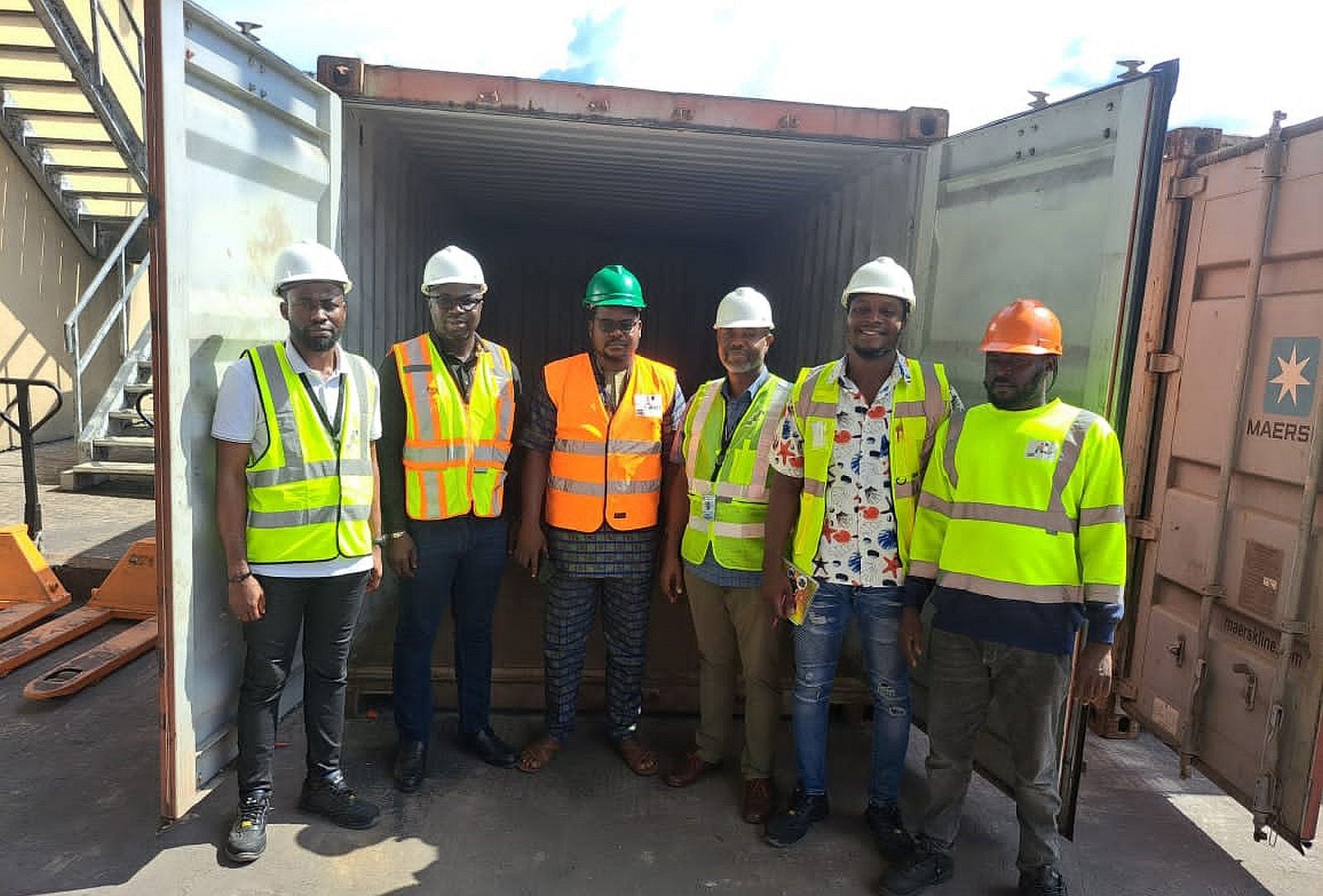
16/11/23
West Africa Container Terminal applies Lean methodologies to improve CFS efficiency
Lean business practices have become an integral part of the company’s DNA. This includes Kaizens, a process for regularly and thoroughly inspecting standard operating processes with a team of colleagues and - where possible - with customers to shave off the seconds, minutes and hours that translate into saved time and money for customers.
Processes for the West Africa Container Terminal’s (WACT) Container Freight Station (CFS) in Nigeria were among the latest to be analysed. WACT serves exporters and importers from East Nigeria and beyond, including regulatory authorities. Located within the port boundaries, it offers a secure location with an experienced staff to provide tailored logistical solutions that fast-track all types of Nigerian produce to the world in a ‘just in time’, efficient manner.
However, after launching a ‘Kaizen’ - which included voice of the customer input - closer inspection revealed opportunities to improve. As a result of the Kaizen, which included value stream mapping, lead times and waiting times at the terminal’s CFS have been cut, lifting the standards of efficiency and improving standard operating processes (SOP)s.
Waiting times reduced by 37%
The team reduced average lead time from 38 minutes to 23 minutes and took waiting time from 37 minutes to 23.
The improvements resulted from the Kaizen approach – which relates to the continuous and steadfast introduction of small, but constant, daily perfections. Says Sunday Irabor, Customer Service Manager at Onne: “During the Kaizen, the team ran with a quote that inspired us: ‘We can't tell how far we can go until we take the next step.’
“And that really pushed us onward, because ‘the next step’ is always to provide better and better service to the customers. It’s the customers that keep the business going, and we’re 100% committed to customer satisfaction”.
Thanks to Kaizen, the team were able to identify the networks, infrastructure and unique logistical solutions, which they will use on a continually improving basis. “As a result, our customers enjoy ease of use, cost effectiveness, and time efficiency for all import and export operations.” he says.
Typical customer savings of EUR 48,000 per year
By way of example, a customer processing 600 units per annum could see a potential saving of up to 42,000,000 Nigerian Naira (around EUR 48,000), compared with using another facility outside of the port.
However, despite positive customer feedback and savings potential, the team knew it could do better. “Working a Kaizen helped us realise that we needed to provide customers with clearer visibility of containers moving to and from the CFS.” says Irabor. Improvements had the potential for big impact.
As a result of the Kaizen it became clear that containers transferred to and from the CFS were registered manually – a suboptimal solution which meant operations, commercial, and shipping line customers all had a patchy view of activities. This negatively impacted planning, communication, and invoicing.
Range of improvements implemented
Improvements identified for implementation include the electronic transmission of information to shipping lines, a dual cycle of terminal tractor lifting, the stationing of customs officers at CFS and the checking of empty trucks before they are transferred to the CFS yard. All of these measures have made real impact, including improved information flow and gate process improvements.
“Our overall service delivery is up, further benefiting customers and business.” says Irabor.
As part of the sustainability plan for these new measures, teams follow up with updates, daily management boards have been created, stand up meetings are held daily, and process confirmation steps have been introduced.
With the improvements to the way of working at the facility, customers enjoy improved ease of use, cost effectiveness, and time efficiency for all import and export operations.